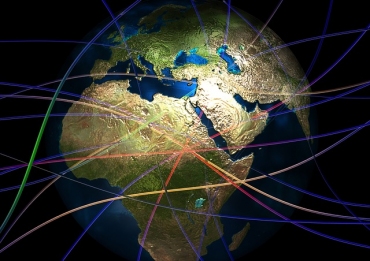Believe it or not, there is not one single nation in the whole world that is self-sufficient and that’s why countries rely on trade with others all around the globe. This is known as the global trade market and most countries are involved in it in one way or another, trading with others to get what they need or want. If you didn’t already know, goods or services that are traded inbound are known as imports while those that are sent to others are defined as exports. Exporting and importing might seem fairly simple, but that’s far from the truth. Whether a country is trading goods by boat, by plane or some other form of transportation there are a number of rules and guidelines that need to be carefully followed. This makes global trading a rather complicated process for many different reasons.
Trade Agreements: Politics has a major impact on the way goods are transported around the world. Occasionally some countries sign trade agreements and treaties with other countries to benefit both of their nations, but these agreements can make the process of trade tricky for others. These agreements are usually made between countries who share the same political beliefs and usually exclude those who they don’t agree with. Some think it’s a totally fair practice, while others are not so sure that these trade agreements are the best thing for the consumer in the long run.

Exchange Rates: Another factor to look at when thinking about entering the global trade economy are the exchange rates. These rates calculate the exchange of currencies between countries and they constantly fluctuate. If you don’t pay attention to the exchange rate of the particular countries you are planning to trade with, you may actually end up losing money instead of making it. Many things can have an impact on current exchange rates including political unrest, economic stability, interest rates and a difference in public debt.
Tariffs and Licenses: A tariff is a type of tax that is used when trading between countries and are determined by the country that the goods are being delivered to. There are taxes known as specific tariffs which are fixed fees placed on one unit of an imported good and others which are known as ad valorem tariffs which is a Latin term for “according to value”. These ad valorem tariffs are a type of trade tax that is based on a percentage of that good’s current value. Not only do you need to pay the taxes and fees associate with global trade, but there are also specialized licenses that are required in order to trade with some countries.
Global trade is definitely complicated with lots of rules and guidelines to follow. To assist you in navigating the intricate world of the global trade economy, it’s recommended you use everything you can to help including a multi-carrier parcel shipping software which will ensure that you are in compliance with the specific regulations of each and every country

